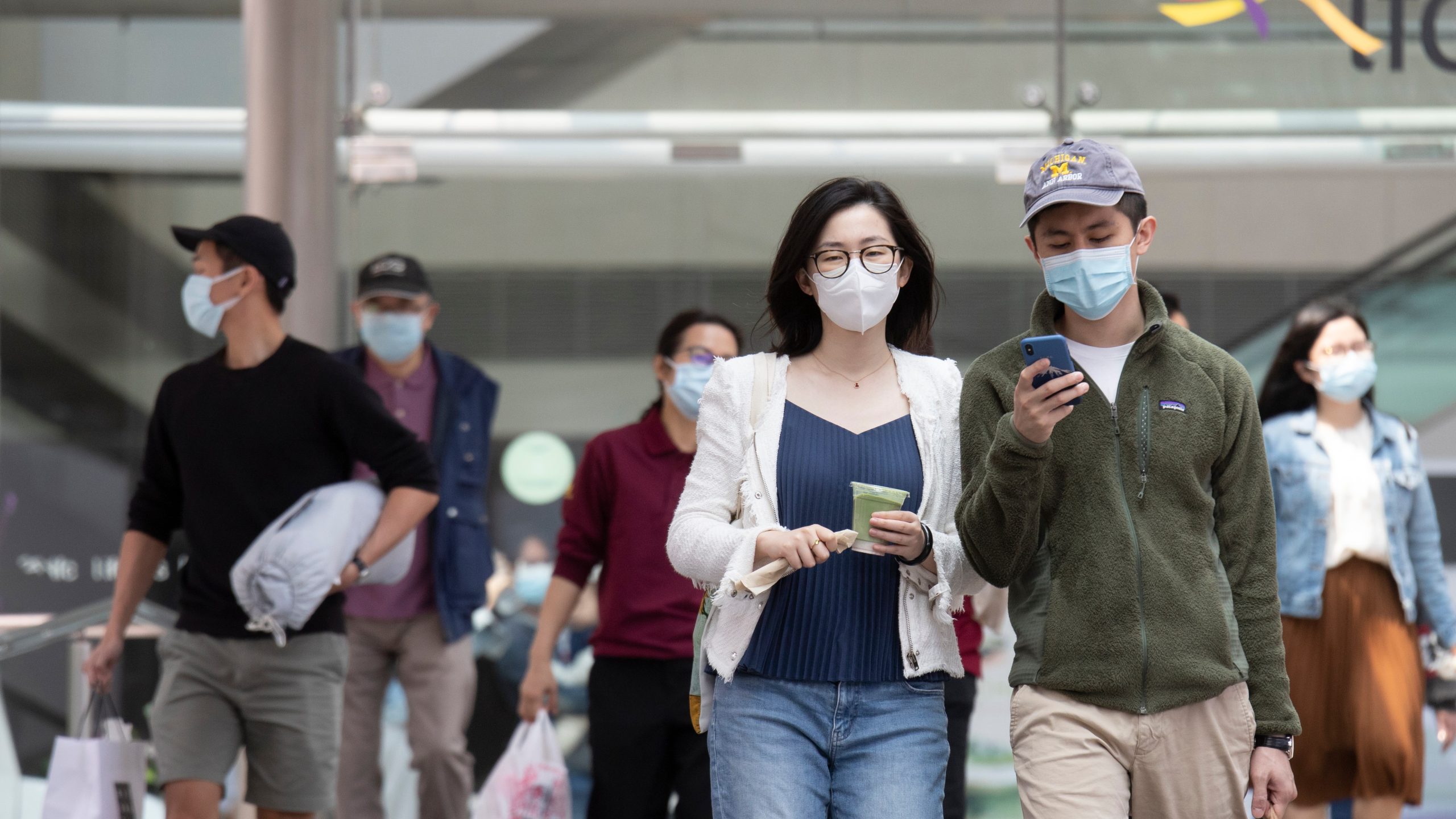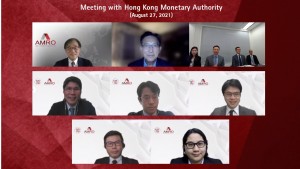
SINGAPORE, August 31, 2021 – Hong Kong’s economy remains resilient, buttressed by ample fiscal and foreign reserves, and strong banking system capital buffers. The economy is expected to rebound in 2021 on the back of recovering private consumption and strong global demand. Looking ahead, it would be important to foster a sustained economic recovery and address long-term challenges to growth potential, such as ageing population, housing supply, economic inequality, and climate change. This is according to the preliminary assessment by the ASEAN+3 Macroeconomic Research Office (AMRO) after its virtual Annual Consultation Visit to Hong Kong from August 16 to 27, 2021.
The AMRO team was led by Lead Economist, Dr. Chaipat Poonpatpibul, while AMRO Director, Mr. Toshinori Doi, and Chief Economist, Dr. Hoe Ee Khor participated in the policy meetings. The discussions focused on the pandemic’s impact on the economy, policy support, and long-term growth issues.
Economic developments and outlook
“The Hong Kong economy is expected to rebound by 6.5 percent in 2021, before moderating to 4.0 percent in 2022,” said Dr. Poonpatpibul. “The prompt, sizeable, and effective policy measures have mitigated the impact of the pandemic. However, given the uncertain pandemic developments, the authorities should stand ready to provide targeted support to hard-hit sectors and households to bolster a steady and more broad-based economic recovery.”
Hong Kong’s economy contracted sharply by 6.1 percent in 2020 as a result of social distancing measures and border closures reflecting recurrent waves of the COVID-19 infections overseas. The growth decline was led by a plunge in private consumption, investment, and international travel.
The economy rebounded strongly in the first half of 2021, owing to effective pandemic containment measures, appropriate stimulus packages, strong external demand, and low base effects. Despite strong growth in the first two quarters of 2021, real GDP remained below pre-recession levels attained in 1H 2019.
In 2021 and 2022, the recovery will be supported by further strengthening in private consumption and supportive global demand. However, the recovery will likely be gradual and moderate in the tourism-related sectors.
Risks and vulnerabilities
While the growth outlook has improved, downside risks are still significant in the short term, though they are not unique to Hong Kong.
Renewed waves of infections and the resulting weakening domestic and global demand could hinder Hong Kong’s economic recovery. Flare-ups of new COVID-19 cases could dampen domestic activities and delay border reopening.
Prolonged US-China tensions could dampen business and market sentiments, as well as economic recovery.
An earlier-than-expected US monetary policy tightening could lead to a sharp tightening of domestic financial conditions, which could impact financial market activities, investment, property markets, and consumption.
There is also uncertainty over the extent to which the global implementation of Base Erosion and Profit Sharing (BEPS) 2.0 could affect multinational companies’ investments in Hong Kong and fiscal revenue into the medium term.
In the longer term, ageing population and climate change could pose major risks to growth and financial stability.
Policy recommendations
The near-term risks call for policy efforts to ensure that the economy and labor market would be on a steady recovery path.
The gradual withdrawal of fiscal policy support is appropriate. Given the lingering uncertainties over the pandemic developments, fiscal policy should continue to provide targeted support to hard-hit sectors and households in the near term. If the economy is hit by a resurgence of COVID-19 infections or other significant adverse shocks, the government can still deploy further stimulus packages to mitigate the impact.
It is important to continue to ensure that liquidity in the banking system is sufficient and conducive to further credit expansion, especially to support hard-hit small and mid-size enterprises. At the same time, the authorities should be mindful of further deterioration in banks’ loan quality and continue to closely monitor banks’ capital and liquidity buffers.
It is recommended that the authorities maintain the current macroprudential policy stance for the residential housing market and stand ready to tighten measures if prices were to increase significantly faster in the short term.
Moving forward, it is essential to enhance Hong Kong’s competitiveness in sectors where it already has comparative advantages while exploring opportunities in new growth areas. Hong Kong could capitalize on further developments in the Greater Bay Area and continue strengthening policies to enhance the already strong position as a global Fintech, green and sustainable finance, and digital professional services hub.
It is also crucial to ensure sustainable and inclusive economic development in the longer term by strengthening policy measures to increase housing supply, and address ageing population and climate change issues.
To enhance buffers down the road, the government may consider to rebuild fiscal reserves when it is opportune to do so and to increase its issuance of long-term bonds to improve flexibility in financing.
[1] For brevity, “Hong Kong, China” is referred to as “Hong Kong” in the text.

Top Row (from L to R): AMRO Director Toshinori Doi, AMRO Chief Economist Khor Hoe Ee, HKMA Manager (External) Mia Yeung, HKMA Executive Director Darryl Chan, HKMA Division Head (External) Donald Chen, HKMA Senior Manager (External) Joseph Au
Middle Row (from L to R): AMRO Lead Economist Chaipat Poonpatpibul, AMRO Senior Economist Sungtaek Kwon, AMRO Economist Kimi Xu Jiang
Bottom Row (from L to R): AMRO Research Analyst Edmond Choo, AMRO Researcher Laura Grace Gabriella
About AMRO
The ASEAN+3 Macroeconomic Research Office (AMRO) is an international organization established to contribute towards securing macroeconomic and financial stability of the ASEAN+3 region, comprising 10 members of the Association of Southeast Asian Nations (ASEAN) and China; Hong Kong, China; Japan; and Korea. AMRO’s mandate is to conduct macroeconomic surveillance, support the implementation of the regional financial arrangement, the Chiang Mai Initiative Multilateralisation (CMIM), and provide technical assistance to the members.
